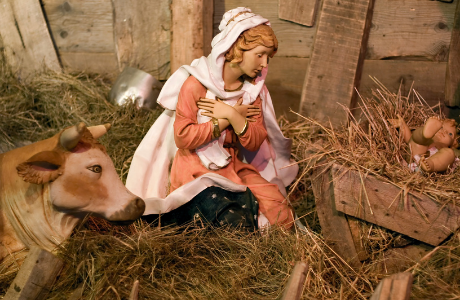Over my years in pastoral ministry, I have spoken to many people who have been unsettled by a verse or two from the Bible. I mean, there are some pretty blunt warnings and, in some cases, quite frightening predictions. Such is the case with Jesus’ statement in Matthew’s gospel:
“Not everyone who says to Me, ‘Lord, Lord,’ shall enter the kingdom of heaven, but he who does the will of My Father in heaven. Many will say to Me in that day, ‘Lord, Lord, have we not prophesied in Your name, cast out demons in Your name, and done many wonders in Your name?’ And then I will tell them plainly, ‘I never knew you; depart from Me, you evildoers!’” [1]
Who are these evildoers to whom Jesus refers? In answer, it’s always essential considering context. “Take the text out of context, and you’re left with a con!” [2] In Matthew 7, Jesus is teaching on the importance of hearing and acting on, HIS message rather than a message taught by false prophets. Jesus says this is what it means to “enter through the narrow gate” (13-14). False prophets are easy to pick, says Jesus, by observing the fruit of their lives and teachings – whether it’s good or bad (15-19). He concludes this section by telling The Parable of the Wise and Foolish Builders, which refers to two groups of people who all hear Jesus’ words and teachings.
Group one “hears these words of mine and puts them into practice,” while group two “hears these words of mine and does not put them into practice.” Group one is “like a wise man who built his house on the rock” while group two “is like a foolish man who built his house on sand.” Both houses (groups) experience the same trials and storms in life, “The rain came down, the streams rose, and the winds blew and beat against that house.” Group one’s house “did not fall, because it had its foundation on the rock.” So is everyone who hears Jesus’ teachings and puts them into practice. Group two’s house “fell with a great crash.” So is everyone who hears Jesus’ teachings but does not act on them.
The Gospels – Matthew, Mark, Luke & John – record Jesus’ teachings; and the other New Testament writers expound on them to more fully explain how His teachings apply in everyday life. One of the things these authors stress is this:
You don’t enter the kingdom of heaven by doing good works; you enter the kingdom of heaven by doing God’s will.
That’s where the “Many” referred to by Jesus have made a grave mistake. Their defense of why they should have access to the Kingdom of Heaven is the good works they have done. They’ve prophesied, driven out demons and performed miracles, but these are displays of God’s power working through a person and not necessarily proof of true faith in Christ. It is of them that the apostle Paul writes, “If I speak in the tongues of men and of angels, but have not love, I am only a resounding gong or a clanging cymbal. If I have the gift of prophecy and can fathom all mysteries and all knowledge, and if I have a faith that can move mountains, but have not love, I am nothing. If I give all I possess to the poor and surrender my body to the flames, but have not love, I gain nothing.” [3]
Entrance to the Kingdom of Heaven is, according to Jesus, for the person “who does the will of My Father in heaven.” What is God’s will? Jesus taught, “my Father’s will is that everyone who looks to the Son and believes in him shall have eternal life, and I will raise him up at the last day.” [4] It is by faith in Jesus that we enter the Kingdom of Heaven! It is by faith in Jesus that we hear his teachings and put them into practice. Good deeds flow out of true faith, but good deeds do not guarantee access to the Kingdom. The late Billy Graham put it this way, “There were a few times when I thought I was dying, and I saw my whole life come before me. I didn’t say to the Lord, ‘I’m a preacher, and I’ve preached to many people.’ I said, ‘Oh Lord, I’m a sinner, and I still need Your forgiveness. I still need the cross.’ And I asked the Lord to give me peace in my heart, and He did – a wonderful peace that hasn’t left me.” [5]
A man died and went to heaven. Of course, St. Peter met him at the pearly gates and explained, “Here’s how it works. You need 100 points to make it into heaven. You tell me all the good things you’ve done, and I’ll give you a certain number of points for each item, depending on how good it was. When you reach 100 points, you’ll get in.”
“Okay,” said the man, “I was married to the same woman for 50 years and never cheated on her, even in my heart.” “That’s wonderful,” said St. Peter, “that’s worth three points!”
“Three points?” he says. “Well, I attended church all my life and supported its ministry with my tithe and service.” “Terrific!” said St. Peter, “that’s certainly worth a point.”
“One point? Gosh. How about this: I started a soup kitchen in my city and worked in a shelter for homeless veterans.” “Fantastic, that’s good for two more points.” “TWO POINTS!!” the man cried, “At this rate, the only way I get into heaven is by the grace of God!”
“Come on in!” Said Peter 🙂
[1] Matthew 7:21-23
[2] Anonymous
[3] 1 Cor. 13:1-3
[4] John 6:40
[5] Billy Graham, Cincinnati Crusade, June 24th, 2002














